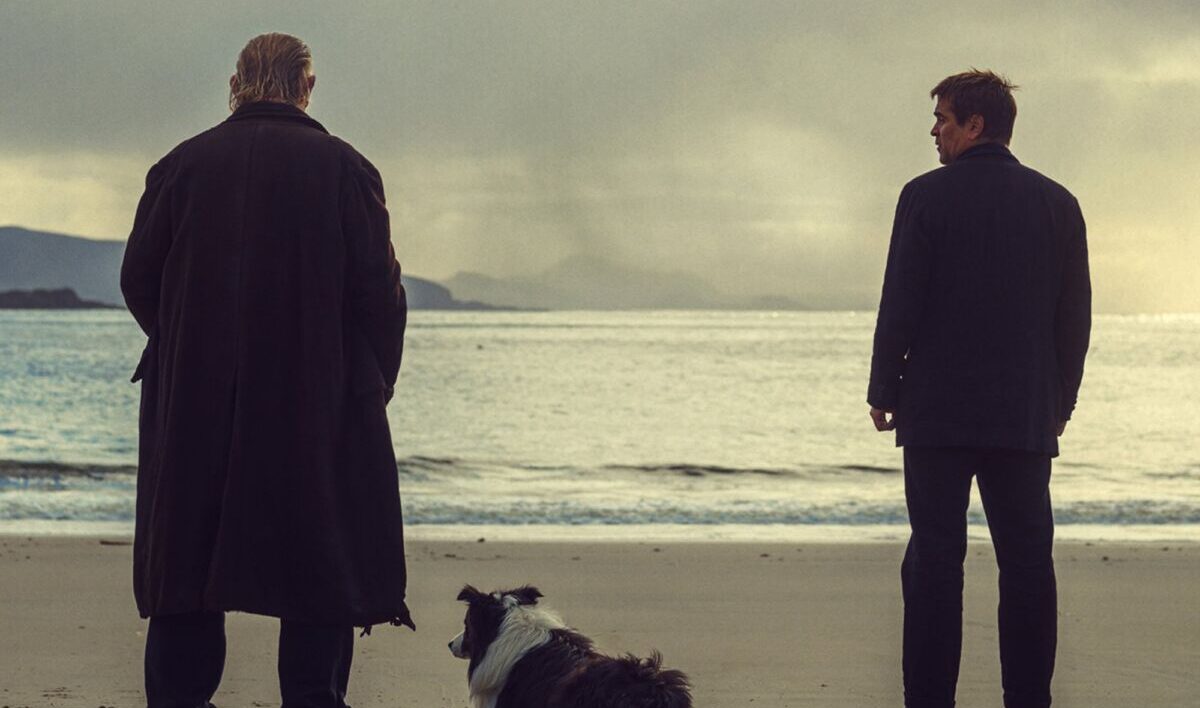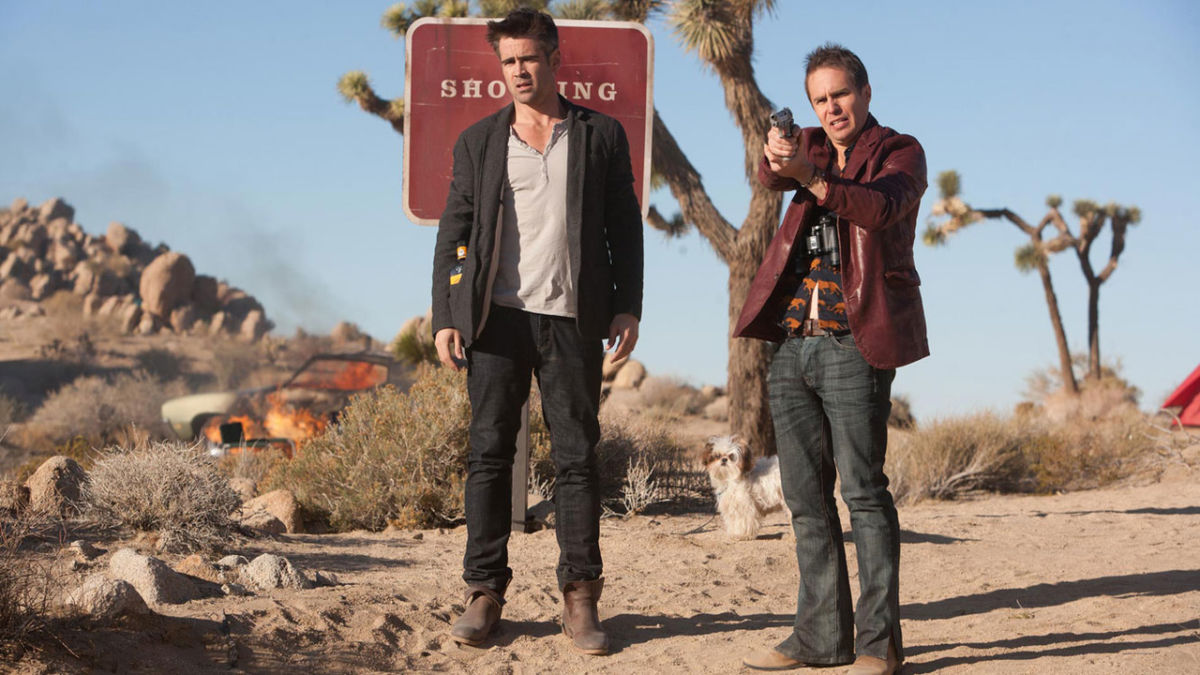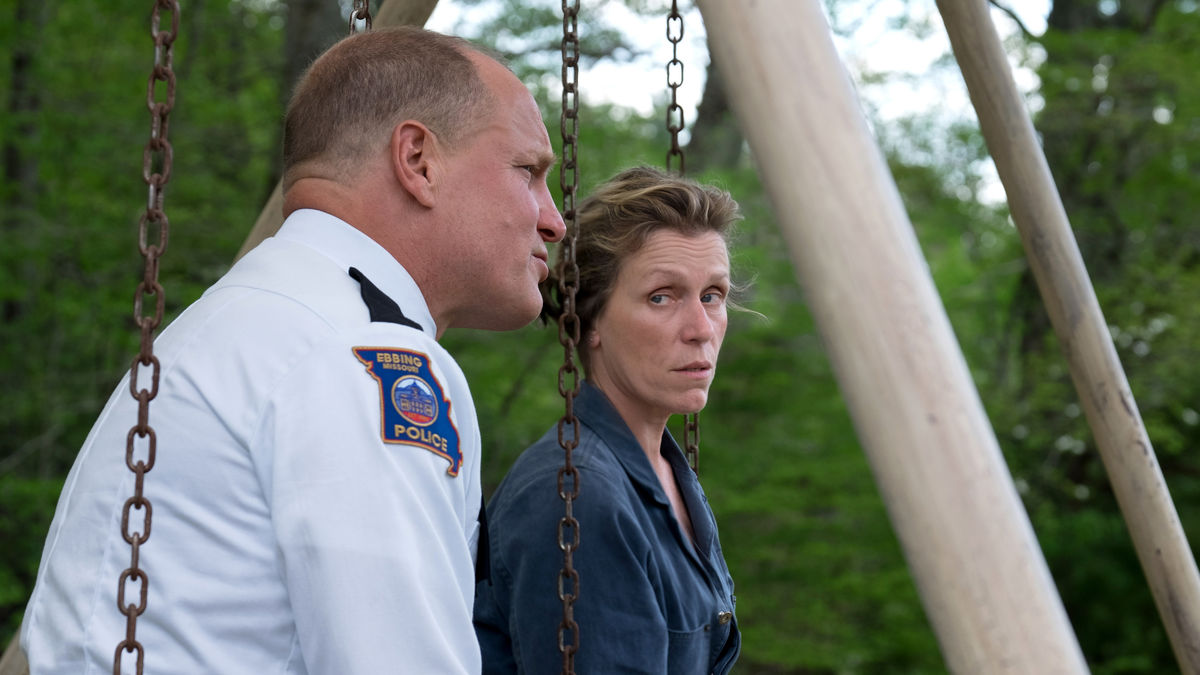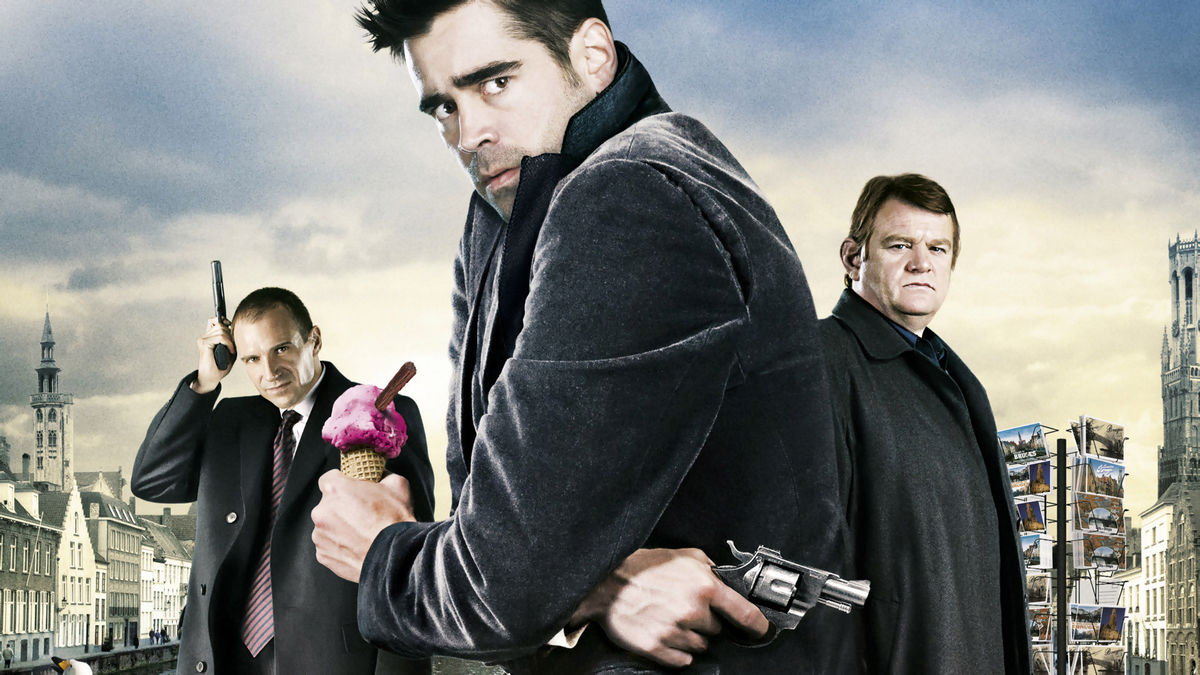The prospect of ranking Martin McDonagh’s films is not an easy one. The British-Irish director shouldn’t really be as well-known as he is; his work is fiercely independent, unclassifiable in terms of genre, and full of complex ideas about religion, death, and the prospect of redemption in a world that is all shades of grey.
Having made his name as an edgy playwright who doesn’t like plays, calling them “the worst of all the art forms,” he then moved seamlessly into the world of filmmaking without so much as a hiccup. Winning the Academy Award for Best Live Action Short with Six Shooter in 2004, this was followed by four feature films, each of them brilliant in their own way, full of acerbic wit, violence and characters of moral uncertainty. McDonagh weaves tragedy and comedy together in a way few writers have achieved in any medium, ever.
With the recent release of The Banshees of Inisherin and its whopping nine nominations at the Academy Awards, it feels like the perfect time for us to look back at his impressive filmography and rank Martin McDonagh’s movies from worst to best, or if we are being fair, best to better.
4. The Banshees of Inisherin (2022)

An undoubtedly controversial choice to put at the bottom of this list, The Banshees of Inisherin is a great film that is a victim of over-acclaim. Like many an Oscar nominee before it, there is so much unadulterated praise surrounding this movie that you are almost bound to be disappointed upon first viewing. Nonetheless, the film’s isolated setting and dynamite performances from Colin Farrell, Kerry Condon, Brendan Gleeson, and Barry Keoghan make for a unique cinematic experience that sticks with you long after the credits roll.
Set on the fictional Irish island of Inisherin during the final months of the Irish Civil War, the film’s action is instigated when Colm (Gleeson) abruptly ends his friendship with Pádraic (Farrell). The latter informs the former that he no longer wishes for them to spend time together as old age approaches, and eventually threatens to cut off one of his fingers for every time Pádraic attempts to talk to him. This threat establishes a fairy-tale-like tone which is sustained throughout the rest of the movie, as we see the devastating effects this has on the two of them and the inhabitants of the surrounding island.
The scenery is gorgeous, McDonagh’s signature witty dialogue is very much alive, and the acting is great, but it’s hard to shake the feeling that the film’s examination of male loneliness and fear in the face of death could’ve been told with more precision. Ambiguity is no bad thing, with McDonagh’s best films dealing astutely in this very topic, but here it results in a weird emotional distance that does not feel intentional.
The film sometimes meanders without a sense of purpose, and its examination of the Irish isn’t exactly subtle, frequently veering into stereotype territory: the literal translation of Inisherin is “the island of Ireland”. But there’s no denying that The Banshees of Inisherin is a wonderful, odd little movie that any filmmaker would be happy to have in their oeuvre.
3. Seven Psychopaths (2012)

McDonagh’s sophomore film is also his first film set in America, and is intensely satirical of its culture in a way that only an outsider could be.
Easily his most meta work, Seven Psychopaths follows a struggling screenwriter in LA with a drinking problem named Marty (Colin Farrell in by far his most subdued McDonagh role) attempting to write a film about, you guessed it, seven psychopaths. When his buddy Billy (Sam Rockwell), who makes a living off stealing and returning pet dogs with devout Christian Hans (Christopher Walken),steals a gangster’s (Woody Harrelson) beloved Shih Tzu, things begin to go awry.
The film’s opening involves two characters (Michael Pitt and Michael Stuhlbarg, great in their short appearances) discussing whether shooting someone in the eye constitutes good aim or not, before they are unceremoniously shot in the head. The rapid-fire dialogue, Hollywood backdrop and genre-bending storyline suggest you may be watching a Tarantino movie. But as it goes on McDonagh’s deeper concerns reveal themselves. Religious motifs, death, and writing itself are all at the forefront of this movie. Marty at one point says “I put a lot of heaven and hell stuff in my stories, but I’m not sure what I believe,” a clear reflection of McDonagh himself.
Billy, Hans and Marty spend a great deal of time discussing cinematic narratives and what works in a movie, like what constitutes the perfect shootout or how killing dogs is a big no-no. Many of the eponymous seven psychopaths are both present in the reality of the film and exist outside of it as stories the characters tell each other.
Rockwell and Harrelson in particular deliver scene-stealing performances of non-stop hilarity, and this is easily the least serious of McDonagh’s work, which is no knock against it. It does, however, often find itself in danger of becoming so meta that the audience may feel they are being walloped over the head with it, and it’s hard not to compare it to Adaptation, which does a better job of commenting on the difficulties of screenwriting.
2. Three Billboards Outside Ebbing, Missouri (2017)

Undeniably dark, but also McDonagh’s most accessible film, Three Billboards Outside Ebbing, Missouri is a fantastic work of moral ambiguities that examines guilt, grief and the complexities of being human.
Set in the fictional town of Ebbing, the movie takes place in the aftermath of a young girl’s brutal rape and murder. Her mother, Mildred (Frances McDormand), proceeds to rent out three dilapidated billboards to question the police department’s inability to catch the killer — an unpopular move, to say the least.
Like The Banshees of Inisherin, Three Billboards is an ensemble piece that examines how one event can affect a community of people. McDonagh populates Ebbing with characters who are distinctly imperfect. Mildred is in some ways culpable for what happened to her daughter, having refused to give her a lift or pay for a taxi on the day that her death occurred. Jason Dixon (Sam Rockwell) is a violent, impulsive police officer, and his boss, Bill Willoughby (Woody Harrelson), is a man dying of cancer who’s acutely aware of his failures as a police chief. None of these characters are portrayed as irredeemable, they’re all just people who may or may not be good depending on where they are in their lives, and all have a chance at redemption.
Martin McDonagh feels much more at home in this distinctly American setting than he did in Seven Psychopaths. Firecracker dialogue, beautiful cinematography and powerhouse performances from Frances McDormand and Sam Rockwell (both of whom deservedly won Oscars) make for a film that possesses the qualities of life in all its ridiculousness, sadness and humour.
1. In Bruges (2008)

It’s no insult to say that McDonagh has yet to top his first film. In Bruges is a rare beast that manages to blend genres seamlessly, moving from absurdist black comedy to tragedy without any of the awkward tonal shifts that a lesser film may possess. Underneath a comical plot about two hit-men who hide out in the small Belgian town of Bruges is a story that asks whether a life well-lived is still possible after an unforgivable act, or whether damnation is inevitable.
It transpires that hit-man Ray (Colin Farrell) accidentally killed a little boy on a job in the events preceding the movie. McDonagh’s Catholic preoccupations are in full force here, with Ray and his partner Ken (Brendan Gleeson) at one point discussing the subject matter of Bosch’s The Last Judgement: who will be delivered to heaven and who will be eternally condemned in hell.
McDonagh deftly contrasts the strict moral code of the hitmen’s boss Harry (Ralph Fiennes, playing a decidedly worse person than Ray) with the sympathy we feel for Ray to ask whether one bad act should define a person, or whether forgiveness as embodied in Christ is key.
Still his most visually appealing film, the foggy streets of Bruges and its Gothic architecture, along with an abundance of Christian imagery represent some kind of mundane purgatory. Farrell, Gleeson, and particularly Fiennes give some of their best performances to date, delivering dialogue so funny, so sad, and so brilliantly written that it has to be seen to be believed.
In Bruges is a film that will have you howling with laughter one minute and crying the next. It is the work that most effectively synthesises McDonagh’s dark comedy with his deeper concerns about the human condition, and in the 15 years since its release, he has yet to make a better film.
READ NEXT: Ranking M. Night Shyamalan’s Movies From Worst to Best
Some of the coverage you find on Cultured Vultures contains affiliate links, which provide us with small commissions based on purchases made from visiting our site. We cover gaming news, movie reviews, wrestling and much more.



